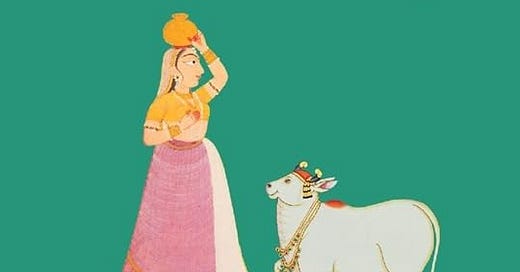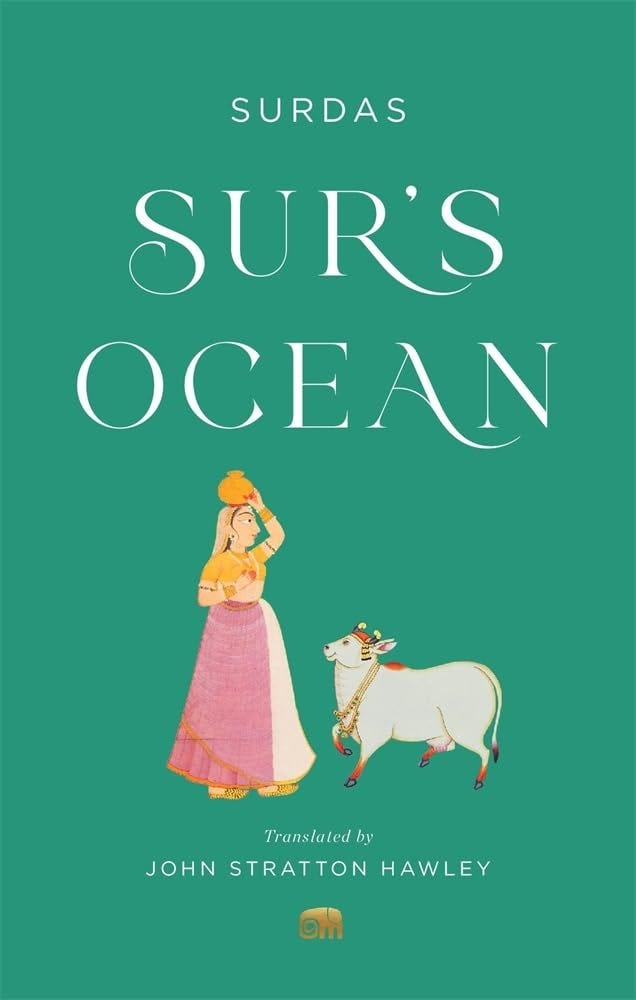Review: Sumana Roy on Surdas
The word for “philosophy” in many Indian languages is darshan. It also means “seeing.” That philosophy—which was once also kavya, poetry—is related to seeing is such an obvious declaration that to imagine a poetry by those denied sight seems to have become a minor tradition in most literary cultures. Homer and Milton, Dirghatamas and Borges … (It feels wrong to use the word “blind”; when I use it here, it’s implied that I’m using it in quotes.) Creation without vision seems neither to be an ideal nor practically plausible, which is perhaps the reason why the human imagination could not conceive of a blind god. Imagine a blind god, for a moment, as creator of the universe.
Consider Surdas, then, of the sixteenth century—a contemporary of Shakespeare—his name meaning servant (“das”) of the sun (“sur”), serving the source of light even though he was blind. His language, Brajbhasha, of the Braj region, running from Delhi along the Jamuna, the river of Krishna’s childhood. John Stratton Hawley, through whose translations we meet Surdas in a new edition from Murty Classical Library of India, introduces him with a well-circulated passage:
The sun is Sur; Tulsi, the moon;
Keshavdas, the stars.
Today’s poets are little more than fireflies
flickering here and there.
Keep reading with a 7-day free trial
Subscribe to Book Post to keep reading this post and get 7 days of free access to the full post archives.



